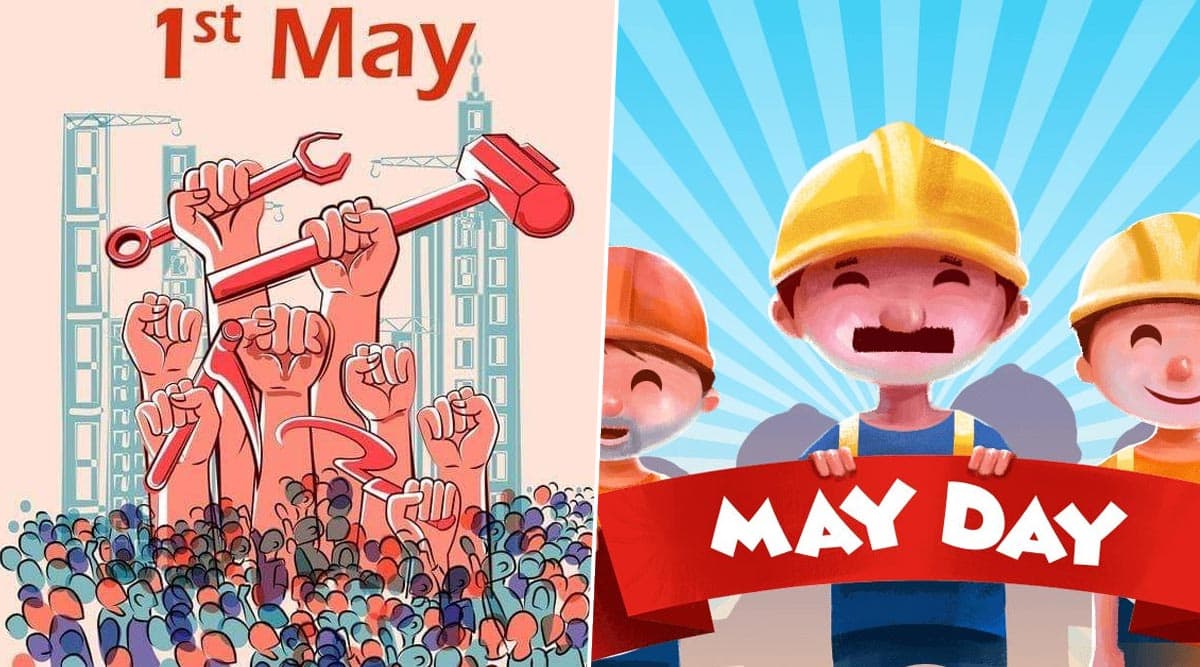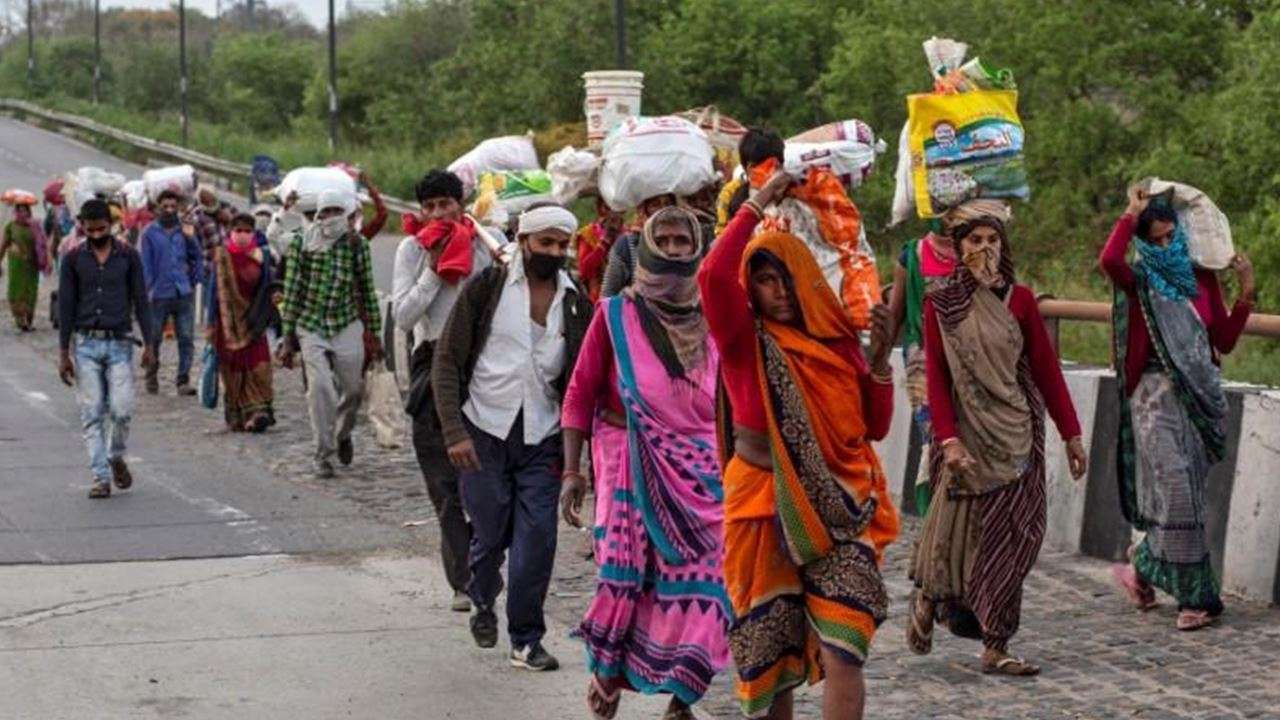We celebrate International Worker’s Day each year without a fail. But do we know what is it actually about?
Our lives are also about the people who make it easy for us to live. Be it the paperman who delivers our morning daily to our doorsteps, or the house help who keeps the floor spotlessly clean. How about the watchman who guards our doors, and the plumber who came by to repair a leaky faucet?
If it were not for these dedicated workers, what a mess our lives would be!
This is why, to cherish their achievements and acknowledge all that they do for us, we celebrate May 1 as International Worker’s Day.

Popularly known as May Day or Labour Day, this day is earmarked in the calendar as a public holiday in over 80 countries across the world.
Therefore, we need to know more than what lies beyond the surface. Essentially, every day should be about extending humanity and appreciating the contribution of laborers who toil for their wages every single day and make our lives easy.
But, what is it about Labour Day that makes it so historically significant for us? And is it enough to appreciate hard-working laborers and workers for a single day in the entire year?
Let’s read about it below!
Meanwhile, don’t forget to look at this short video on manual scavengers in India who put their lives on the line to serve society!
International Worker’s Day and Its History!
Unfortunately, we fail to appreciate the importance of labor beyond International Worker’s Day. Moreover, we are unaware of the significance of the larger movement that underlines the reason behind celebrating May 1.
The Haymarket Riots
The history of International Worker’s Day goes back to the late 1800s in the United States. The story of May 1 begins with the Haymarket Riots in Chicago.
The Haymarket Riots happened when on May 3 1886, a protestor was killed by the police while they were attempting to disband a trade union strike at the McCormick Harvesting Machine Company. Several workers were injured due to police action. Workers were staging a protest to secure an eight-hour workday.
The strike at McCormick was a part of a larger campaign that demanded better working conditions. One of them was to reduce the number of work hours at factory units.

After the event, anarchist labor union leaders decided to organize a peaceful meeting at Haymarket Square on May 4,1886. Chicago’s mayor, Carter Harrison attended the meeting and called it ‘peaceful’. But as soon as he left, a police contingent arrived to disband the gathering.
Amidst the commotion, someone threw a bomb. Responding to the attack by the unidentified person, the police opened fire on the gathering. As many as 8 civilians and 7 police officers died in the riots, while about 60 people were seriously injured.
The event created a lot of shockwaves among the public and the leaders alike. Though the labor organisation, Knights of Labour was blamed for the incident, their involvement was not proved. However, the allegation created public distrust towards the KOL.
Later, several KOL leaders went on to form the American Federation of Labour, inspiring many to take up the cause of worker rights and safety.
What Happened After Haymarket?
Five years after the Haymarket Riots of 1886, US President Grover Cleveland signed a piece of legislation officially making Labour Day a national holiday in the states.

Initially, people celebrated Labour Day in September. This is still the trend because although we identify International Worker’s Day with May 1, it is known as Labour Loyalty Day instead.
Usually, the US celebrates its official labor day on the first Monday of September. The first Labour Day in history was in fact observed on September 5, 1882 in New York, much before it was proclaimed as a national holiday in 1894.
But Why May 1?
Due to the significance, the political Left and communists attach to the Haymarket Affair, there is a broad agreement on the date of the Labour Day. Communists and labor unionists think that the September date avoids the importance of the Haymarket Affair.
Therefore, their adoption of May 1 is a rebellion more than a convention.
Moreover, May Day is essentially a European seasonal holiday that marks the return of spring, right from the pagan times. But with the emergence of modern-day labour unions, Labour Day was associated with May and not September.
Do All Countries Celebrate May 1 as International Worker’s Day?
No. It can be confusing, but not all countries celebrate it on May 1.
International Worker’s Day in Europe departs significantly from the tradition in the US. Although they recognize the Labour Day in May, Europe does not celebrate it on May 1, but on the first Monday of May. On this day, there is a bank holiday in the UK and Ireland.
Countries like New Zealand, Australia and Canada celebrate it on different days. But most of the countries follow the European and American conventions. This is why, despite differences, the International Worker’s Day is celebrated on May 1 in most countries.
The Wrong We Do to Our Workers and How We Fail to Appreciate Them
It is not easy for our workers to be looked down upon on a daily basis for so-called menial jobs. But imagine, what if the sweeper doesn’t clean your parks, or the gardener stops tending to plants. What if the janitors stop cleaning the overflowing toilets in malls, schools, and other places?

More than realizing their need, it is about cultivating respect. When for centuries, the Shudras and Atishudras in India were shamed for performing menial jobs and were exploited, we cannot claim to be citizens who care about our workers for one day in a year.
In fact, it is a shame that despite India banning manual scavenging under the Prohibition of Employment as Manual Scavengers and their Rehabilitation Act, 2013, we still have an overwhelming number of people who do it because they are forced to.
While this sounds tough, the truth is that we have made our workers suffer even after reading about May Day. We often put them down, laugh at them, ignore them and sometimes, even misbehave with them because we feel that it is right.
It is not right when you expect your maid to ignore her own children while tending to you. And when the house help is a child themselves, it is abusive to hire them as a house help. Moreover, it is wrong to endorse child labor and pay low than minimum wages to workers, especially women all in the name of convenience.
Conclusion- How Can We Celebrate International Worker’s Day?
While May Day is an important day in the calendar, let’s go beyond history. Labour Day is not just about celebrating the hard workers around us for only one day. It has a message of humility for us.
Essentially, Labour Day is about respecting our workers, treating them humanely and be concerned for their rights. Labour Day is of no consequence if we exploit them on a daily basis, withhold their wages, bargain with them for the last penny and make them work for back-breaking hours without any thanks, salary or incentives. We should also raise our children to be compassionate to them.

International Worker’s Day is about empathy and nurturing a genuine respect for people who work hard. Though the day is important, everyday can be May Day, if we think hard enough.
If you wish to show appreciation for the workers around you and indeed celebrate and cherish them, be polite to them. Moreover, learn to fight for them and read up on labor’s rights to help them in reclaiming their due. Offer them help and support even when it is not May Day. It is then that we will be able to realize the broader significance of International Worker’s Day.

